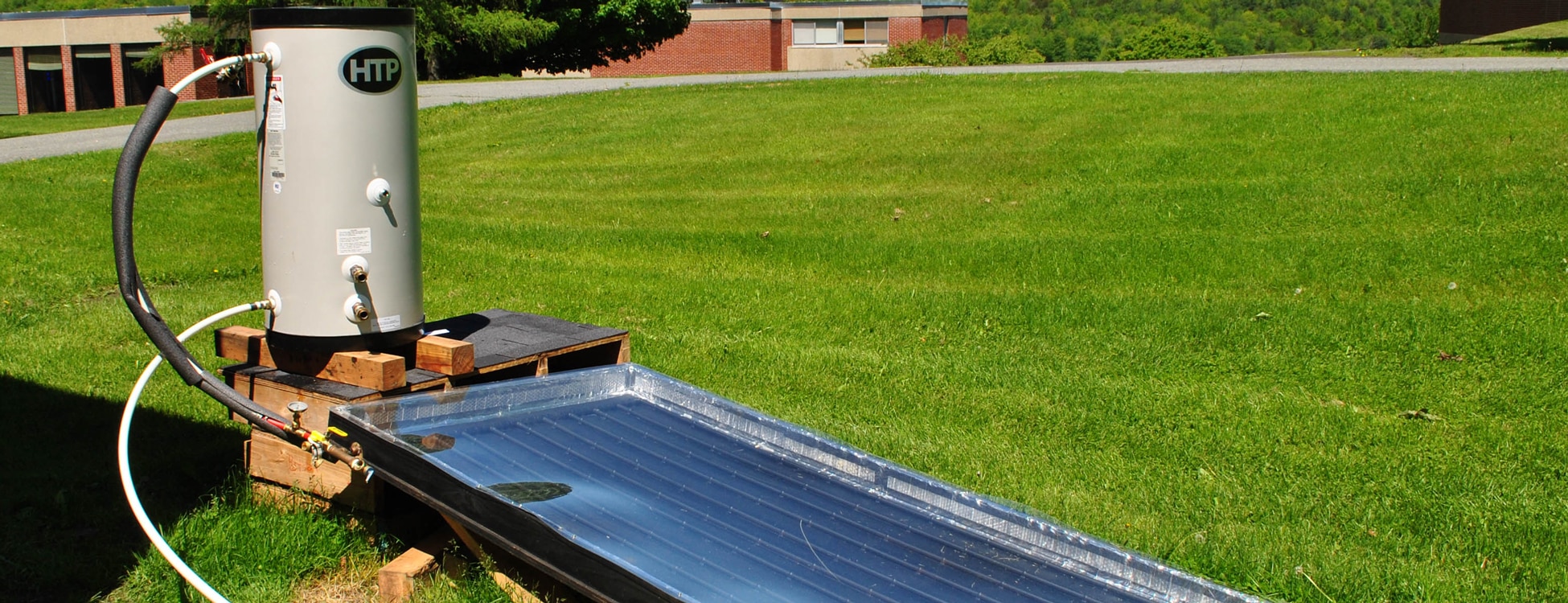At her first Commencement, President Patricia Moulton asked of the eager 2017 graduates, “Please be part of that change that makes this world a better, stronger, more respectful and tolerant place… We need you to be not just great graduates, but great humans!” It seems that many graduates, and current students, have taken her advice to heart.
In mid-June, four Vermont Tech students and their professor will travel to Arusha, Tanzania to install a water heater for LOHADA’s Camp Joshua Christian School. LOHADA is a Tanzanian-run, non-profit charity organization serving impoverished children and the elderly. The school is located in one of the poorest slums of Arusha. Over 140 disadvantaged youth ages 7-15 currently reside there, about 60 more commute in for the English taught day-school.
The water heater will give LOHADA children and staff access to cooking and bathing water which will make their day-to-day lives a little easier. A significant advantage of the water tank is that it requires no electricity. Instead, it uses trapped solar heat cycled through copper pipes and a water mixer to raise the water temperature to about 140 degrees Fahrenheit. The organization currently relies on burning wood for their water-heating needs.
Vermont Tech engineering technology students Chris Sabatino, Jarek Hammerl , Cory Dalsimer, and Drew Gough, spent their spring semester building and improving a solar water tank for their capstone project. They’re working closely with Professor Emeritus Ken Vandermark of the Electrical Engineering Technology Department, who is also on the LOHADA Board of Directors. This will be the students’ first trip to Tanzania and Ken’s fourth. The children at Camp Joshua call him Babu Ken, which means Grandfather Ken in Swahili.
A prototype of the passive solar water heater is currently catching rays outside Green Hall on the Randolph Center Campus. A 200-liter water tank perches above a large, black sun catcher. Insulated tubes and copper pipes connect the two. 
“Ideally it will do even more than the 200 liters. With a thermosiphon system, the idea is to draw from it throughout the day and not just all at once,” says Jarek. “As Chris showed in our calculations, we allowed for a little extra just in case the efficiency wasn’t what we thought it was or the daylight wasn’t we think it is.”
The next problem that the team faces is finding all the supplies and equipment in Tanzania. Luckily the group will be in a large city with plenty of hardware stores to choose from. The students want their water heater to be as bulletproof as possible to minimize future repairs as they won’t be able to return to Tanzania for routine maintenance, or in the event of an equipment malfunction. They intend for the heater to provide clean, hot water for years to come. A team of high school students from LOHADA’s post-secondary school will be trained how to fix and provide upkeep for the system. Some of the LOHADA student will make smaller versions for a science class taught by the Vermont Tech students.
Jarek said, “I really like working with things. Thinking through something, drawing it out, talking with the team, and really getting to see it built is a dream come true.”
Chris, Jarek, Cory, and Drew are all very excited for this opportunity to travel, learn, teach, and most of all, to help a lot of people in need.
For more information on the Tanzanian Charity LOHADA, visit http://lohada.org/
